Para ver la versión en español, haz clic aquí
Hey there, Hive!✨
When I was a teenager, that was the time when I really started reading a lot. I didn't have a favorite genre, I really read anything that caught my attention. Although I always asked my dad or my grandparents to gift me the books I wanted to read, the day came when I had my own money and I decided to go to one of the most famous bookstores in my city (I miss you, Nacho Library) to buy a book.
My budget wasn't much so I clearly wasn't looking for any famous title, so looking through the section of more modest books I found one that had a cover and name that caught my attention: The Death of Venus, written by the spanish Luis Racionero. Without knowing almost anything about its content, I bought it, and today I want to tell you my opinion (no spoilers)
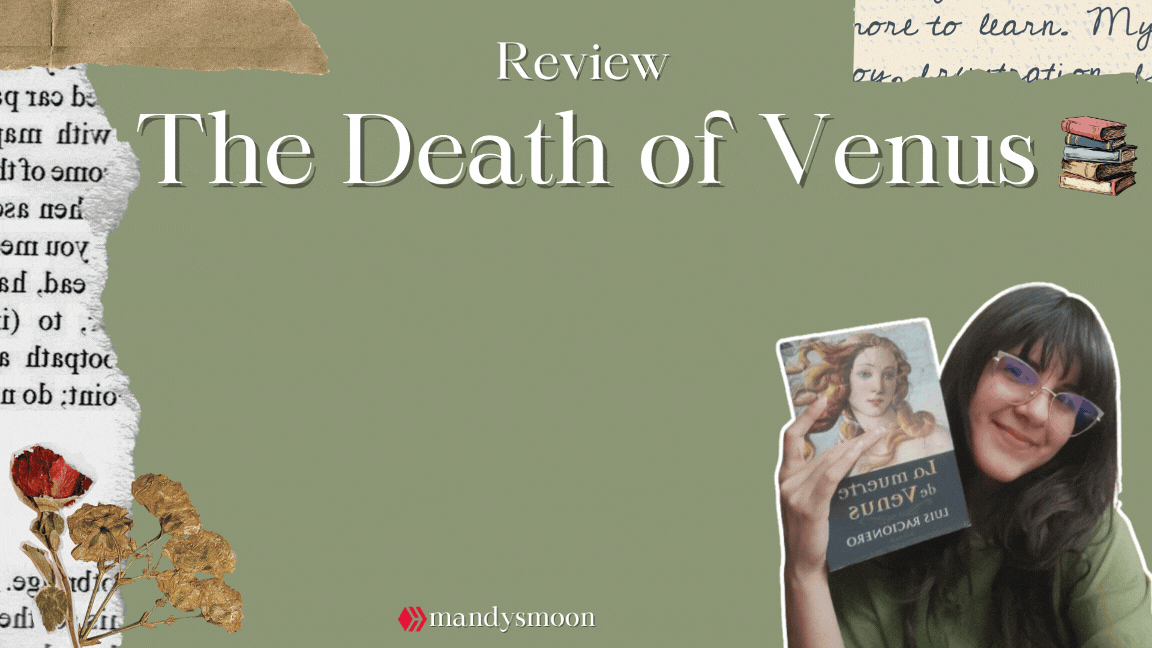

Synopsis
It is beautiful 15th century Florence. Everything seems to be going great in an increasingly prosperous city, full of wealth, cultured people and a lot of art, as it is the time of the Renaissance. Lorenzo de Medici is the head of the most respected family and therefore an acclaimed leader, although of course that is not to everyone's liking.
On the other hand, there are a lot of young artists creatively representing the time in which they live, seeking to make a name for themselves in society, with wealth but above all, to continue exploring their creativity. Sandro Botticelli is one of those young, talented painters who is earning his fame. In search of his inspiration to complete his work The Birth of Venus, he meets Simonetta, a beautiful girl who is far from worrying about high society, fame or wealth, but who, due to her beauty, manages to captivate Sandro, who asks her to be his muse.
From then on, the painter became obsessed with winning the young woman's love, but not all loves are reciprocated...
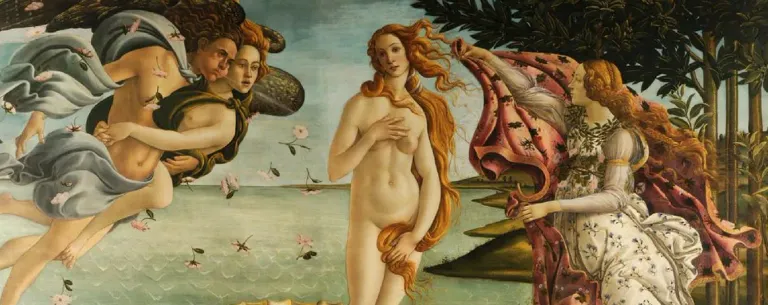

This is a historical novel, which means that the author took true historical elements and reinterpreted them by adding fictional elements to convey the message he wanted to give. I find this to be an interesting way of writing because although obviously not everything that happens is true, it gives it a more realistic touch since there are things that did happen the way the writer tells them. For example, Botticelli existed, and the book makes many other references to painters like Da Vinci and other historical events from 15th century Italy.
I also find it to be an entertaining way to learn a little bit of history, although obviously when reading you have to keep in mind that there is a lot of fiction in the middle. However, with this book I learned certain things about the Renaissance and the art of the time, which is a subject that has always been interesting to me.
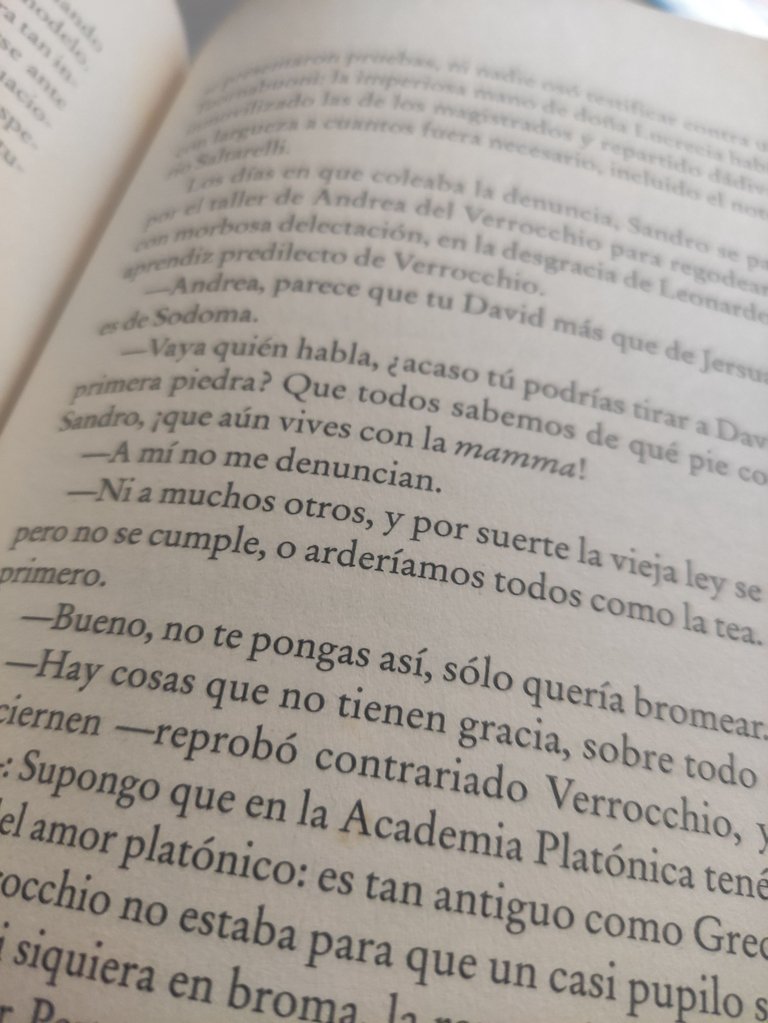 | 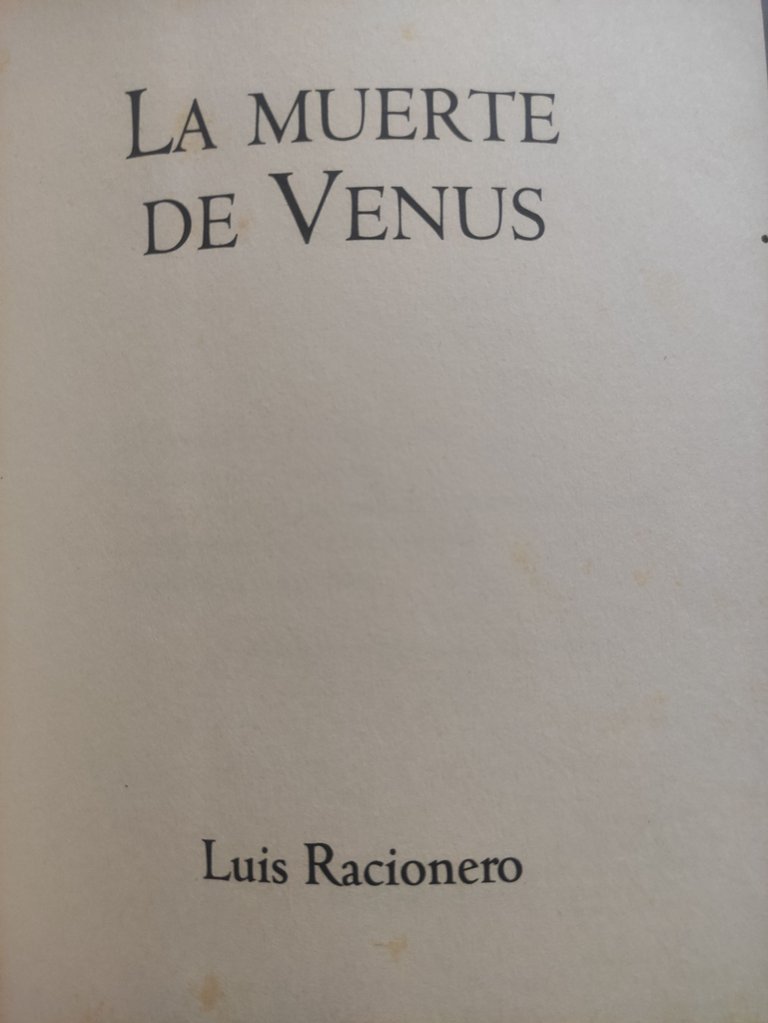 |
|---|
But going to the message of the story, it is about passion, unrequited love, jealousy and obsession, elements that mixed together do not leave a good result. It is a romance full of drama as well as toxic behaviors by all people involved, because everyone does questionable things. From not tolerating rejection, not establish clear limits, unreasonable jealousy, lack of emotional responsibility, anger management problems and a long etcetera. This story definitely romanticizes toxic relationships but it must also be said that it is a reflection of the time in which it is inspired.
No character is truly defensible. Although one is the most problematic, the other, unconsciously or not, does not contribute to making things better either. I would say that the main problem of the whole romance is the lack of communication that is the result of the fact that in reality, everyone played with everyone's feelings. In a possessive and obsessive way, or in a falsely innocent way, each one sought to take advantage of the other in some way. So that so called "romance" is everything you should never do.
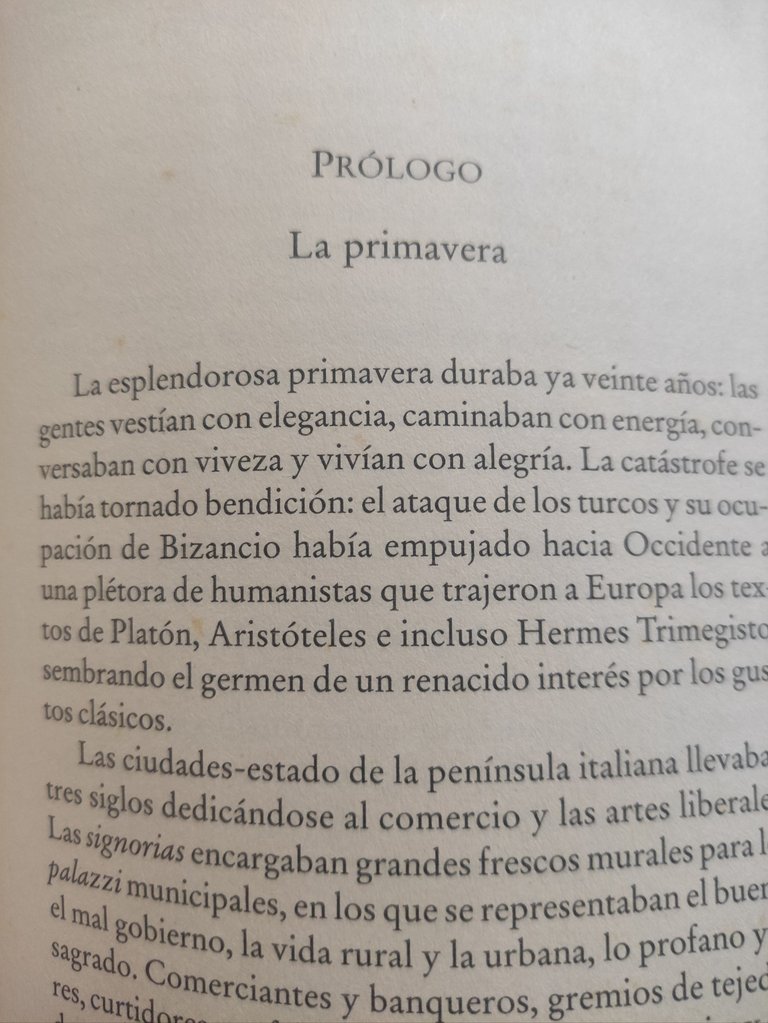 | 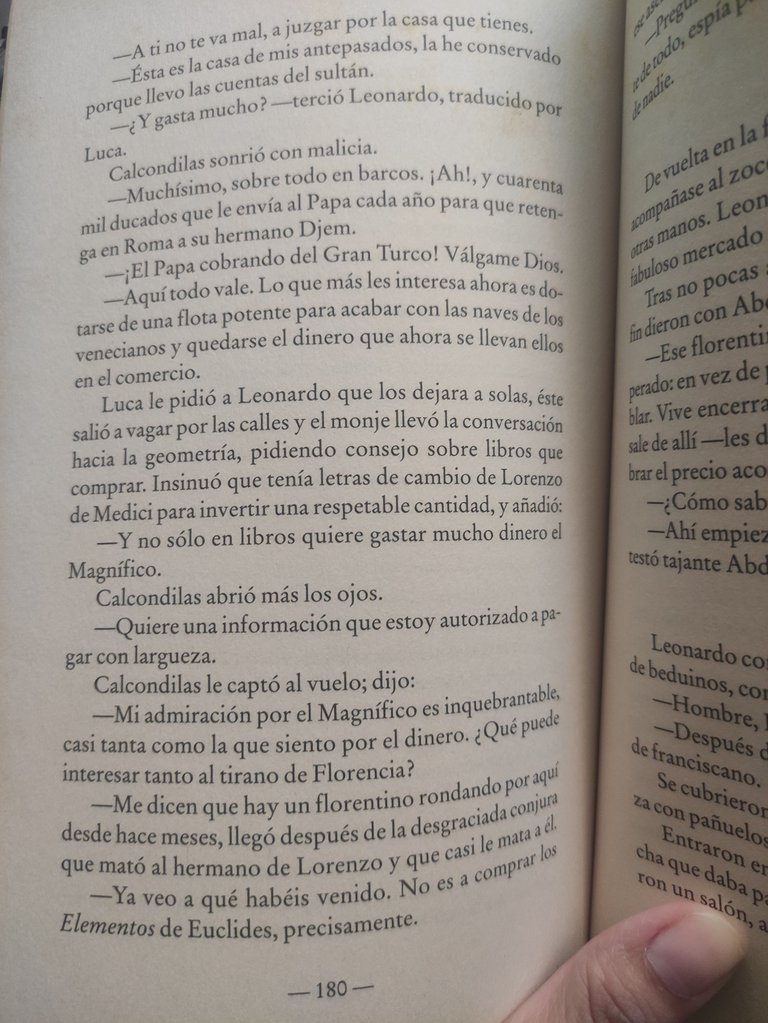 |
|---|
On the other hand, I have a problem with the way Racionero, the author, represents female characters. I have read interviews of him where he says he is not misogynistic, but remembering the character of Simonetta I frankly doubt that he is sincere. The women in this story are incredibly sexualized and represented as characters with little or no depth, not because they are secondary, on the contrary, they are simply as flat as a sheet of paper. There is no charisma, aspirations, nothing that is truly significant. And although it can be argued that he is simply representing what was thought about women at the historical moment in which the story is based, the truth is that if you read his interviews you will probably be left with the same doubt as me.
But leaving that issue aside, it is undeniable that his way of writing is very entertaining, the story flows with a pleasant rhythm, it has just the right amount of details and its drama is very well constructed. Far from saying this as a negative thing, it feels like reading a gossip about the latest events in the city, which I think is a great way to tell a drama.
So this is a short book that gives you interesting historical facts and a good bit of light entertainment, although it is possible that with so much inappropriate behavior it can transmit unhealthy messages about interpersonal relationships. If you read it, do so with critical thinking.
But it has to be noted that this book does not have an english translation, so sadly is not available for everyone...
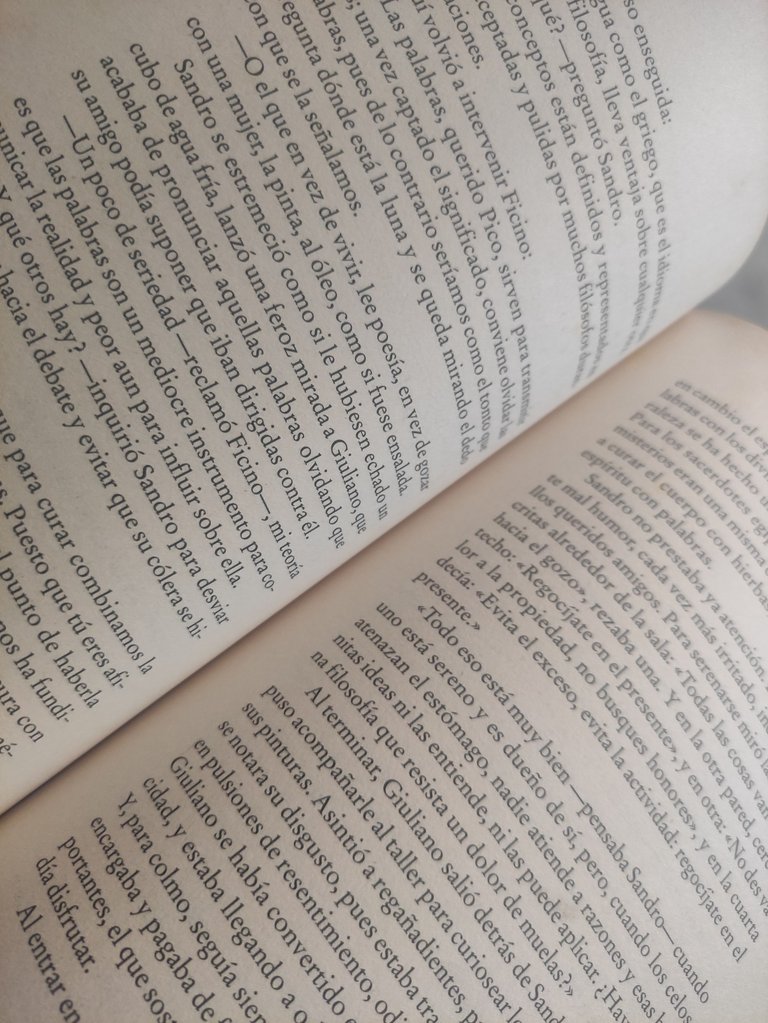 | 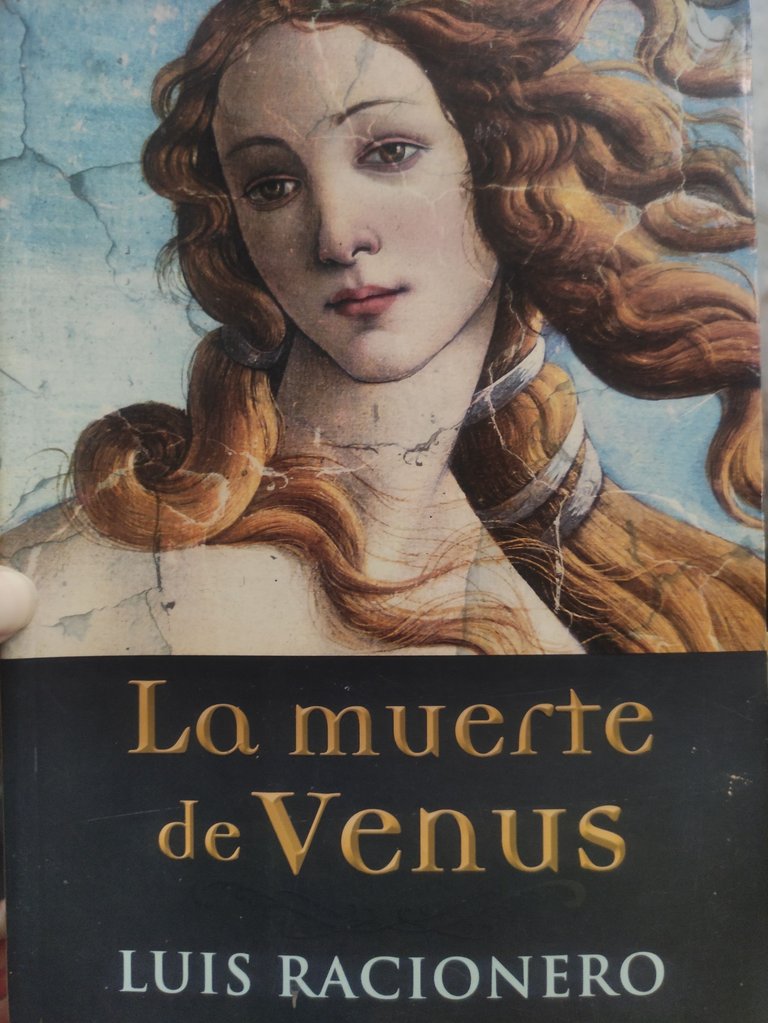 |
|---|




Español
¡Hola, Hive!✨
Cuando era adolescente fue el momento donde verdaderamente comencé a leer mucho. No tenía un género predilecto, realmente leía cualquier cosa que me llamara la atención. Aunque siempre les pedía a mi papá o mis abuelos que me regalaran los libros que quería leer, llegó el día donde tenía mi propio dinero y decidí ir a una de las librerías más famosas de mi ciudad (te extraño, Librería Nacho) a comprarme un libro.
Mi presupuesto no era mucho así que claramente no iba buscando ningún título famoso, por lo que viendo la sección de libros más modestos encontré uno que tenía para mí una portada y nombre llamativo: La muerte de Venus, escrito por el español Luis Racionero. Sin saber casi nada de su contenido lo compré, y hoy quiero comentarles mi opinión (sin spoilers)
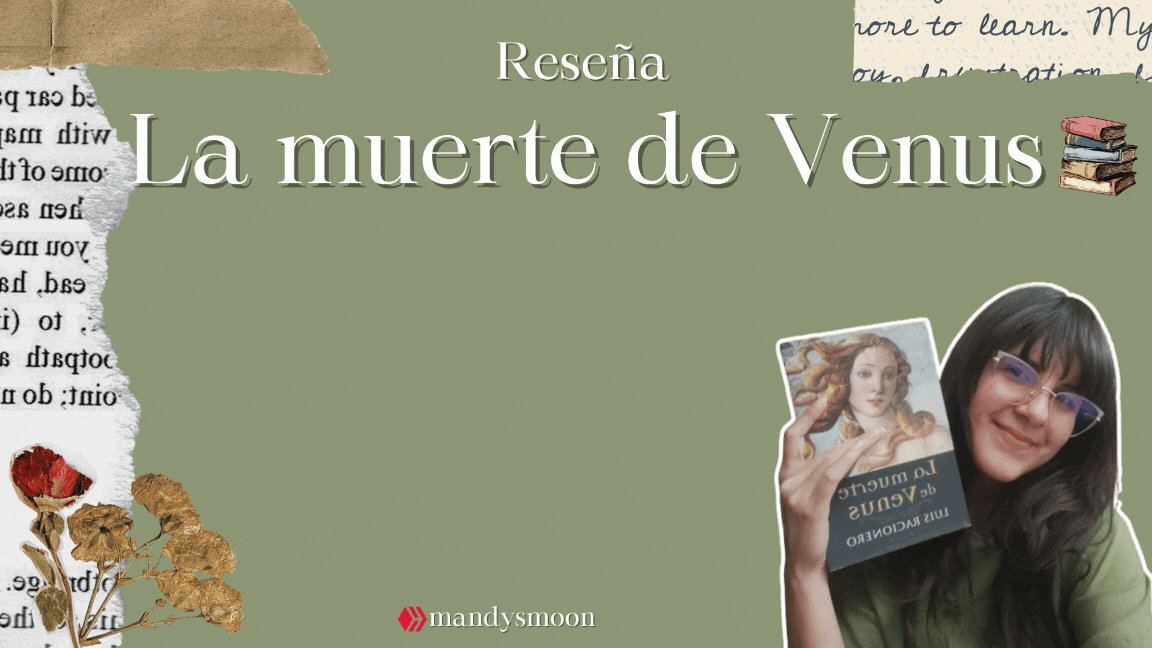

Sinopsis
Es la hermosa Florencia del siglo XV. Todo parece ir excelente en una ciudad cada vez más próspera, llena de riquezas, gente culta y mucho arte, pues es la época del renacimiento. Lorenzo de Medici es la cabeza de la familia más respetada y por tanto un líder aclamado, aunque por supuesto eso no es del agrado de todo el mundo.
Por otro lado, hay un montón de jóvenes artistas representando de manera creativa la época en la que viven, buscando hacerse con un nombre en la sociedad, con riquezas pero por sobretodo, seguir explorando su creatividad. Sandro Botticelli es uno de esos jóvenes, talentoso pintor que se está ganando su renombre. En búsqueda de su inpiración para completar su obra El nacimiento de Venus, él encuentra a Simonetta, una preciosa chica que está muy lejos de preocuparse por la alta sociedad ni la fama o riquezas, pero que por su belleza logra cautivar a Sandro, quien le pide que sea su modelo.
Apartir de allí, el pintor se obsesionaría con conseguir el amor de la joven, pero no todos los amores son correspondidos...


Esta es una novela histórica, lo cual quiere decir que el autor tomó elementos históricos véridicos y los reinterpretó proporcionando elementos de ficción para así transmitir el mensaje que deseaba plantear. Esta me parece una forma de escritura interesante porque aunque obviamente no todo lo que ocurre es cierto, le da un toque más realista puesto que hay cosas que sí ocurrieron de la forma en que las narra el escritor. Por ejemplo, Botticelli existió, y el libro hace muchas otras referencias a pintores como Da Vinci y otros hechos históricos de la Italia del siglo XV.
También me parece una forma entretenida de aprender un poco de historia, aunque obviamente al momento de leer debes tener en cuenta que hay mucha ficción en el medio. Sin embargo, con este libro aprendí ciertas cosas sobre el Renacimiento y el arte de la época, lo cual es un tema que siempre me ha interesado.
 |  |
|---|
Pero yendo al mensaje de la historia, esta trata sobre la pasión, el amor no correspondido, celos y la obsesión, elementos que mezclados no dejan un buen resultado. Es un romance cargado de drama además de comportamientos tóxicos por parte de todos los involucrados, porque todos hacen cosas cuestionables. Desde no tolerar el rechazo, no dejar límites claros, celos descabellados, carecer de responsabilidad afectiva, problemas de control de ira y un largo etcétera. Esta historia definitivamente romantiza las relaciones tóxicas pero también ha de decirse que es un reflejo de la época en la que está inspirada.
Ningún personaje es verdaderamente defendible. Aunque uno es el más problemático, el otro, inconscientemente o no, tampoco contribuye a que las cosas mejoren. Diría que el problema principal de todo el romance es la falta de comunicación que viene siendo fruto de que el realidad, todos jugaban con los sentimientos de todos. De forma posesiva y obsesiva, o de manera falsamente inocente, cada uno buscaba aprovecharse del otro de alguna manera. Así que ese «romance» es todo lo que jamás deberías hacer.
 |  |
|---|
Por otro lado, tengo un problema con la manera en que Racionero, el autor, representa los personajes femeninos. He leído entrevistas suyas donde dice no ser misógeno, pero recordando el personaje de Simonetta francamente dudo que eso sea sincero. Las muejeres en esta historia son increíblemente sexualizadas y representadas como personajes con poca o cero profundidad, no por ser secundarios, al contrario, simplemente son tan planos como una hoja de papel. No hay carisma, aspiraciones, nada que sea verdaderamente significativo. Y aunque se puede argumentar que simplemente está representando lo que se pensaba sobre la mujer en el momento histórico en el que se basa la historia, lo cierto es que si lees sus entrevistas probablemente quedarás con la misma duda que yo.
Pero dejando ese tema de lado, es innegable que su forma de escribir es muy entretenida, la historia fluye con un ritmo agradable, tiene la cantidad justa de detalles y su drama está muy bien construido. Lejos de decirlo como algo negativo, se siente como leer un chisme de los últimos hechos ocurridos en la ciudad, lo cual creo que es una forma genial de narrar un drama.
Así que este es un libro corto que te da hechos históricos interesantes y un buen rato de entretenimiento ligero, aunque sí es posible que con tanto comportamiento innadecuado puede trasmitir mensajes poco sanos sobre las relaciones interpersonales. Si lo lees, házlo con pensamiento crítico.
 |  |
|---|



Posted Using INLEO
I really like content like yours :) thanks for sharing!
!discovery 30
Thank you very much for reading and supporting my content! I truly appreciate it 🖤
This post was shared and voted inside the discord by the curators team of discovery-it
Join our Community and follow our Curation Trail
Discovery-it is also a Witness, vote for us here
Delegate to us for passive income. Check our 80% fee-back Program
Thank you so much!